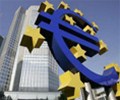

Euro zone finance ministers will discuss soaring energy prices on Monday, concerned they could slow economic recovery, impact on investment decisions and disproportionately hit the poorest, a European Commission note showed.
The note, prepared for the ministers’ meeting in Luxembourg, said however, that any policy response must first determine how temporary or permanent the energy price rise was.
The European Central Bank believes the more expensive gas, oil and electricity prices are only temporary and will ease in 2022 and many euro zone governments agree.
But ministers will discuss the issue separately and share best practice how to deal with the problem since they need to prepare 2022 budgets that will be heavily affected by energy costs.
“The current rise in energy prices is already impacting economies and there is a need to discuss the impact of higher prices on national budgets,” the Commission note, seen by Reuters, said.
“There are a wide spectrum of policy options and levers open to governments ranging from tackling supply (investment) to demand management (subsides and national taxation measures) as well broader competition and regulatory aspects,” it said.
Benchmark European gas prices have rocketed by more than 300% this year due to factors including low storage levels, outages and high demand as economies recover from the COVID-19 pandemic, dragging up wholesale electricity costs.
“From an economic perspective, higher energy prices have the potential to slow the recovery. The assumptions around electricity, gas and overall prices are a key input in preparing budgetary plans, particularly in light of recent volatility,” the Commission said.
Jos Delbeke, a former senior Commission climate official, on Thursday said the soaring prices also raised the possibility of longer-term policy reforms – including shifting taxes away from electricity and onto fossil heating fuels, or switching to long-term gas supply contracts that are less exposed to spot price fluctuations.
“The European energy and climate policy framework will now be tested. It can come out more resilient,” Delbeke said, in a paper for the European University Institute.
EU leaders will also discuss the surging prices when they next meet on Oct. 21-22.
“The current situation points to the need for more investment in renewable energy sources as economies transition away from fossil fuels,” the Commission note said.
“There is a risk that higher energy prices will also have disproportionate impacts on lower income groups and older households (energy poverty), which is a particular concern over the winter months,” it said.
Source: Reuters (Reporting by Jan Strupczewski; Editing by Toby Chopra, Kirsten Donovan)